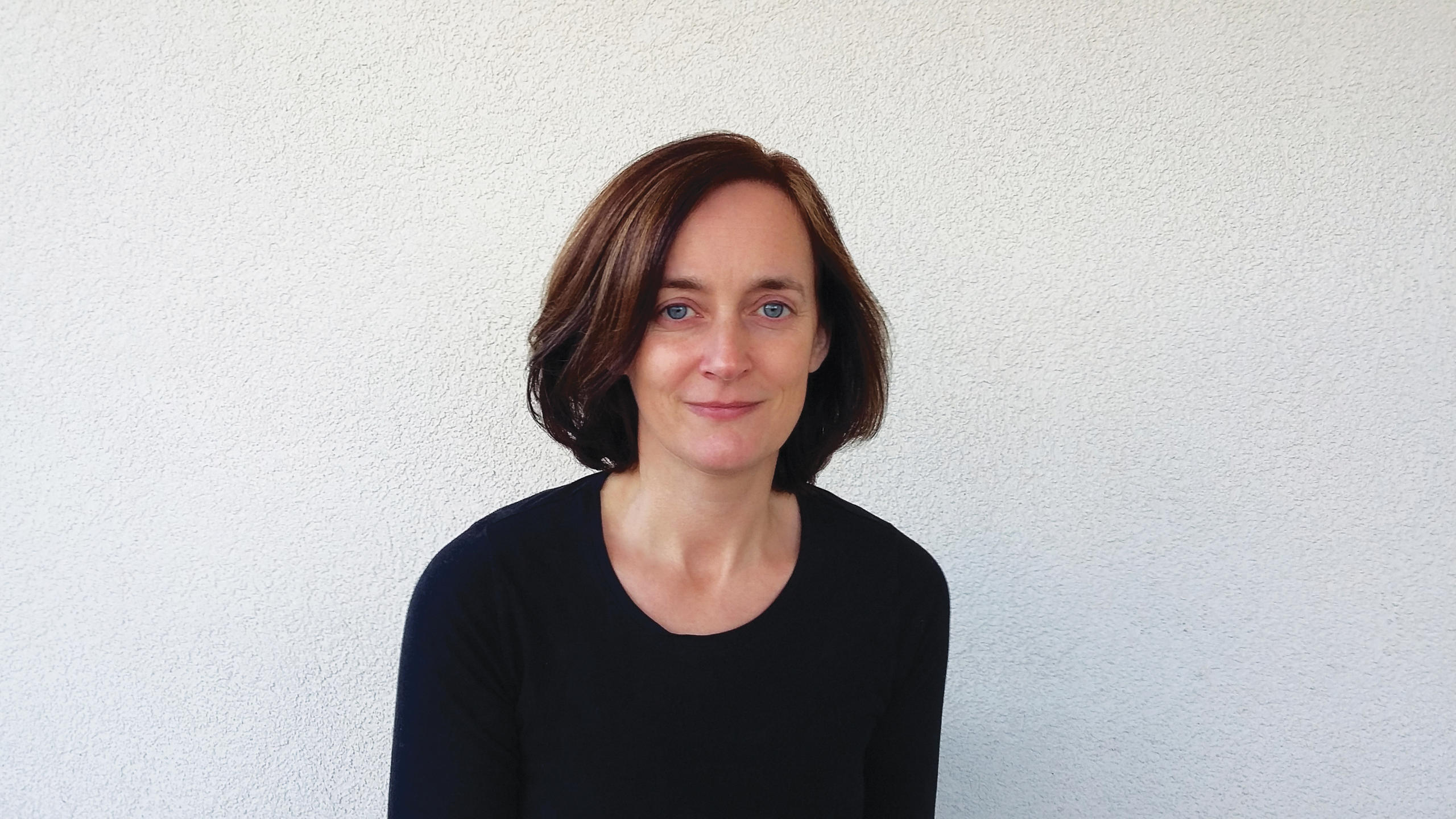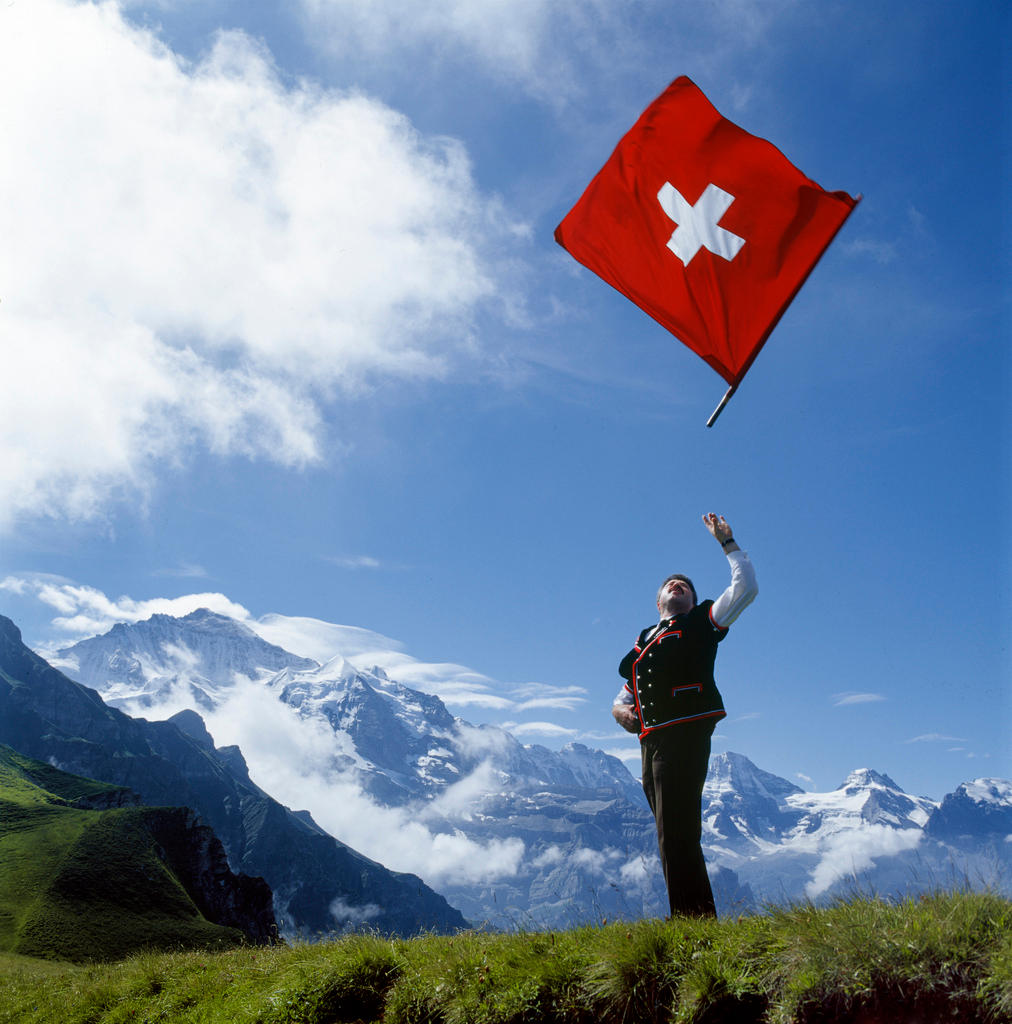
Investigating 10 myths about Switzerland
After more than a decade as a journalist in Switzerland, Clare O’Dea explains what motivated her to write a new book on the country, The Naked Swiss: A Nation Behind 10 Myths.
There has always been a touch of one-upmanship between nationalities, especially in Europe. When the British say the Swiss are boring, the implication is that the Brits are the fun guys. Casting the Swiss as the nation that has become rich on ill-gotten gains draws attention away from the dubious sources of wealth of the former colonial powers. When the French accuse the Swiss of xenophobia, are we to conclude that immigrants in France have a happy time of it? The criticism is more than just friendly banter, it has an edge of scorn, and also serves to lessen the achievements of the Swiss.

What achievements am I talking about? It starts with the individual. Not only do the Swiss enjoy the highest average wealth per adult at US $567,100 (according to the most recent Credit Suisse Global Wealth Report), they are also happy and healthy. The Swiss have the lowest obesity rates in Europe and the second-longest average life expectancy in the world, at 85 years for women and 80 for men. They secured the top spot in the United Nations World Happiness Report. Indeed, Switzerland leads the rankings in global surveys in all sorts of categories, from innovation to quality of life to nurturing talent.
The Swiss also enjoy a bottom-up democracy which anchors the greatest decision-making power with the people. And finally, between 2005 and 2015, the Swiss economy grew at 2.5 per cent per year on average, outperforming all other Western economies.
The worrisome question that helped motivate me to write The Naked Swiss: A Nation Behind 10 MythsExternal link is why, despite the country’s successes, the Swiss are viewed with narrowed eyes. I wanted to challenge some of these pre-conceived ideas, and what better way to do it than to check the facts. By going through Switzerland’s dirty laundry and dissecting the nation’s successes, I hoped to produce a fairer and more balanced view of the Swiss. After more than a decade of covering Swiss news and making a new life among the Swiss, right on the imaginary border where the French- and German-speaking cultures meet, I felt I was in a good position to test the clichés.
About that dirty laundry. When it comes to reputation, one of the country’s greatest strengths – a thriving financial sector – is also one of its greatest weaknesses. Switzerland is the global leader in off-shore wealth management, with a share of the market estimated at between one quarter and one fifth. What this means is that the world’s wealthiest individuals, the infamous one per cent, favour Switzerland as a place to keep their assets abroad. Among this clientele are upstanding global citizens who gladly pay their fair share of taxes, and have not earned their vast fortunes through exploitation, corruption, the destruction of the environment, connections to oppressive regimes, and a casual willingness to crush their fellow man. And then you have the others, whose wealth is horribly tainted and always will be.
The recurring charge against Swiss banks is that they do not try hard enough to separate good clients from bad clients. Worse than that, they have been found, as in the UBS case in the United States exposed by whistle-blower Bradley Birkenfeld, to be actively courting and facilitating ‘bad clients’. It is not only common-or-garden tax dodgers who swell the client lists of the banks, but serious money launderers too. Every time a new case comes to light revealing illicit funds in Swiss banks, be it a Malaysian, Brazilian, Panamanian or Russian scandal, the Swiss are branded as the purveyors of all that is rotten in the world.
There is a lot to tell about Switzerland, enough to fill the pages of countless books. But what did I want to say in The Naked Swiss? In approaching a subject as broad as a nation, structure was very important. To narrow things down, I decided to take the 10 most widely held assumptions about the Swiss, many negative, some positive, and dismantle them. The reader could then decide which of these potential myths are just a big misunderstanding and which stand up to scrutiny.
On the banking question, for example, it is worth noting that banking does not define or dominate the Swiss economy. Combined with the insurance sector, banking contributes 13% to the total economy, directly and indirectly, including demand for goods and services in other sectors. Banking provides some 165,000 jobs, of which 28,000 work in asset management for customers abroad. Startling really, how few people are needed to babysit two trillion dollars of foreign wealth. There are multiplies more people (than the 165,000) working in the energy, health and manufacturing sectors.
Meanwhile the winds of change, in the form of new information exchange systems which will operate between the Swiss national tax authorities and their counterparts abroad, are set to blow away cross-border tax evasion as we know it. Although the mega-rich will always be harder to catch.
The chapter that required the most research was, ‘The Swiss Helped the Nazis’. There are two starkly contrasting narratives of the Swiss role in the Second World War, in which they are either cast as heroes or villains. Were the Swiss the profiteers of Europe, who sold their souls for Nazi gold, and closed their borders to desperate Jewish refugees, or were they plucky and resourceful in fending off danger on all sides? Like most neutral countries, their war record is chequered, but the perceived failings of other neutral or occupied European countries have not caught the public imagination in the English-speaking world to the same extent.
Perhaps the reasons different standards of judgment are applied to the Swiss is that they were perceived to have done well out of the war. “They didn’t pay the price in blood,” as former Swiss president Pascal Couchepin told me. And that has been hard to forgive.
Much of the hard work for this book came before I even started to write, as I progressed on the long, slow road to integration. The word integration is bandied around a lot in Switzerland, as it is a central requirement of the naturalisation process, which I completed myself in 2015 after 12 years living here. Achieving meaningful integration allowed me finally to see the country and its people from the inside.
To be an immigrant – even a privileged one with a good education and job prospects – is to be at a disadvantage. You begin as an outsider, and there’s a good chance you will always remain an outsider. That is a humbling position to be in. While settling in to a new adopted home, it is useful to be aware of the psychology behind the relationship. Because that is what immigrants are building, a new relationship with a new place. A happy ending is never guaranteed.
Because there are so many immigrants in Switzerland (one in four), with short-term residents coming and going constantly, many people have embarked on that relationship with Switzerland to greater and lesser degrees of success. All have come away with strong opinions about the country, some of which, unfortunately, can be summed up by – Switzerland is great; pity about the Swiss.
Popular votes that impose strict conditions on foreigners, such as the 2009 ban on the construction of minarets or the 2014 vote to limit European Union immigration, do not exactly build bridges between the Swiss and their foreign neighbours and workmates. Yet, with a much higher proportion of foreigners than any other European country (excluding Luxembourg), there is remarkably little evidence of social strife in Switzerland. In matters of the heart, the Swiss are decidedly pro-integration. One in three marriages in Switzerland is between a Swiss and a foreigner. Take away the foreign-foreign marriages and almost half of Swiss people getting married in a given year choose a foreign spouse! Those foreign spouses, this writer included, have a backstage pass to Swiss life. When it comes to the Swiss psyche, we are a well-informed group.
For such a small place, myths and clichés about Switzerland abound. But behind these myths is where the really interesting stuff is happening – radical pledges on clean energy, backroom negotiations in the Middle East, workable solutions to youth unemployment. The Swiss experiment of self-determination has reached a challenging point in history, as the country walks the narrow line between political cooperation and acquiescence in a disunited continent. My hope would be to make some small contribution towards a better understanding of the Swiss. A little understanding goes a long way.

More
Boring, crooked bankers? 10 Swiss myths, uncovered

In compliance with the JTI standards
More: SWI swissinfo.ch certified by the Journalism Trust Initiative





























You can find an overview of ongoing debates with our journalists here . Please join us!
If you want to start a conversation about a topic raised in this article or want to report factual errors, email us at english@swissinfo.ch.